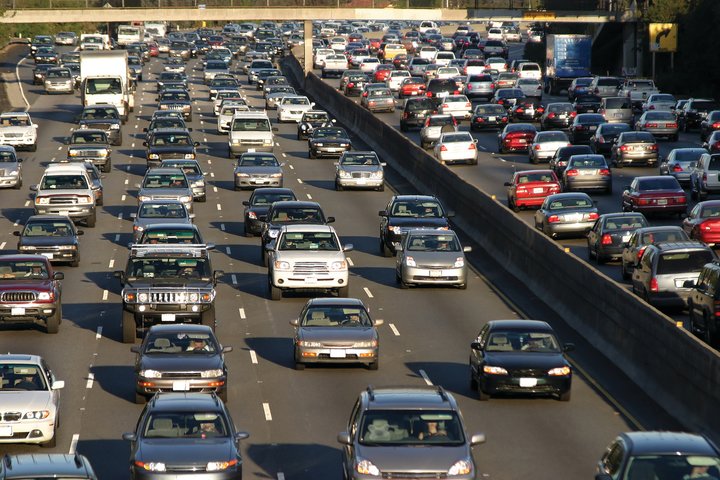The Chicago Metropolitan Agency for Planning (CMAP), which is responsible for comprehensive transportation planning in northeastern Illinois, is currently updating its list of regionally significant projects that are eligible for federal funding.
Unfortunately, the proposed list includes projects that would add nearly 300 miles of lanes to our region’s expressways and arterial streets, leading to a substantial increase in driving, millions of tons of additional CO2 emissions, and decreased safety for pedestrians and bicyclists.
We need your help!
Take action now to demand CMAP leaders reject these dangerous and polluting roadway expansion projects that will increase emissions and traffic crashes while failing to relieve congestion over the long-term.
Evidence shows that adding lanes to expressways and arterial streets does not result in long-term congestion relief for people driving. This is because new capacity is quickly filled up by additional cars and trucks, leading to more emissions. This is known as induced demand, and it results in numerous negative public impacts including:
- Climate: Transportation is the top cause of greenhouse gas emissions in Illinois. We must reduce driving to save the planet. According to analysis by the Metropolitan Planning Council, if CMAP’s proposed road projects are built, they will generate up to an additional 1.5 billion vehicle miles traveled per year and 11 million tons of direct CO2 emissions by 2050.
- Cost to build and maintain: Like everything, the cost of building roads is going up fast. And the costs for local governments to maintain the roads is no small expense — recurring costs in the budget every year that could be spent on other public amenities like parks.
- Safety: More driving results in more exposure to the risk of serious crashes that can seriously injure people and alter their lives forever.
- Cost to households: Driving is the most expensive form of transportation — when people have no other option but to drive to meet their daily needs, they are forced to spend more resources on owning a car.
Strangely, CMAP does not consider induced demand as part of the process for evaluating projects for funding. Given the urgency of the climate crisis and the considerable new resources available for transportation infrastructure over the next five years, it is imperative that CMAP nixes these new projects that would only lead to more driving and more greenhouse gases in the atmosphere.
CMAP has an opportunity to use federal and state funds to fix the infrastructure we already have and improve facilities for biking, walking, and transit, which will ultimately lower greenhouse gas emissions and provide safer travel options for everyone.
Take action now by sending a letter to CMAP leaders to halt roadway expansion!
You can also join the live public hearing on CMAP’s draft plan update on Thursday, August 11 at 4:00 pm. CMAP’s project list is available for public comment until August 13 and is scheduled to be approved in October.

